
Winter is the season of extraordinary change. The first day of winter is the shortest day of the year and each of the coming days are longer than the ones before. During the winter, we experience the seasonal shifts of the earth’s cycles as water freezes, snow builds up, and daylight creeps across fields of frozen crystals to nudge us into a new year.
Winter provides an incredible opportunity for reading deeply, journaling about our thoughts, and reflecting on the year just passed. While book journaling, we can create a healthy outlet for engaging with the changing seasons as we let go of the earthy colors of fall and move into the white, silver, and evergreen in the promises of winter. Book journaling encourages lovers of the written world a creative outlet for appreciating books that help us to let go of that which is past and hold fast to the dreams of the year to come. As we journal about our reading, we create a collection of writing that allows us to process without the scrutiny of public distribution. Unlike blogging, article writing, or professional work, book journaling encourages readers to reflect on the improvements gained by reading good literature in a series of reflections and a collection of thoughts from the reading process. Attributes of Winter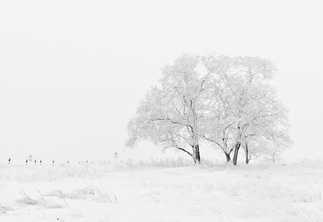
Winter is a time of promise, of forgiveness, or new beginnings, and of enlightenment. In winter, we come into alignment with the earth’s cycles and connect our own changes to the movements happening all around us.
Winter is about letting go of the old, the outdated, and the useless. Whatever we have been holding onto that no longer suits us can be released during winter without fear or concern. We can discharge our bad habits, throw out the caution that held us back, and toss away the baggage—figurative and literal—that we have been so determined to lug about. Winter is a time for rejuvenation. In winter, we go into hibernation, we pull up the blankets, we put another log on the fire, we slow down to write letters by hand, and we cook real food slowly and thoughtfully. In winter, we get an amazing opportunity to restore our spirits and create a balance that may have been out of order. We evaluate the tally sheet of our lives to determine where we exceeded our expectations and where we fell short of living the lives we intended. We look closely at ourselves, breathe deeply as we consider where we have been and where we are going, and wonder what magic we might bring into our lives. Winter is for Starting Over 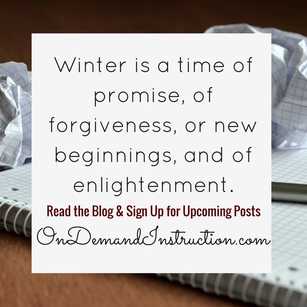
Many cultures believe that winter brings about the end of one year and the beginning of the next. The ancient Scandinavians created many of the winter traditions that we celebrate still today to mark the completion of the season and the starting of the new one.
By bringing evergreen indoors, our ancestors were reminded that even green life can survive the harshness of winter. By burning the yule log and letting go of their bad habits and setting their goals for the new year, they affirmed the ending of one cycle and the beginning of the next one. By bringing together family and friends for holiday feasts, they marked the passing of the year with those they held dearest. Winter is a time that suits the release of the old and the acceptance of the new in alignment with the natural world’s movements as the days reach their shortest and shift again to the light as the days become longer. Winter Book Choices 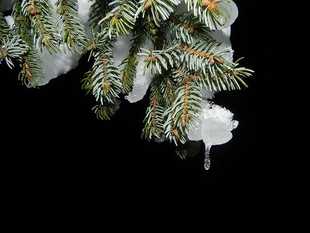
Winter certainly lends itself to a balance between reading good literature and journal writing. The cold months bring people indoors where sitting by a warm fire enjoying a cup of tea and a book is the order of the day. Yes, getting outside for a snow shoe hike can be invigorating, but cozying up with a journal can revive the spirit from the inside out. The books listed below are just a few to consider reading and journaling about in your journal writing practices this winter.
Jane Eyre by Charlotte Bronte I don’t think my blood boiled as hot before I first read Jane Eyre. Talk about a woman who has to learn to live and let live. Jane is a spectacularly strong woman who is faced with neglect and abuse around every corner. Though her losses pile into mounds, she continues forward in a dark and unsympathetic England to sustain herself and eventually thrive. Never Cry Wolf by Farley Mowat Never Cry Wolf is a nonfiction chronicle of an arctic scientist who travels to the great white north to study the wolves. What he expects to find are savage beasts bent of murderous destruction but what we finds are close familiar ties, community bonds, and a lovely cycle of nature in balance. The Wind-Up Bird Chronicles by Haruki Murakami As Toru Okada searches for his wife’s missing cat, he falls into an underworld of bizarre characters as he continues his search. Revealed within the dialogue and descriptions are snippets of social commentary that enliven the plot. The Miniaturist by Jessie Burton Unlimited wealth, suppressive religion, and a frigid, mysterious setting in Amsterdam. Newlywed Nella Oortman moves to the city to begin her new life in a cold winter country. Nella’s miniature house with fully-operational details reveal to her the secrets and dangers of life around her. Legend by Marie Lu During the civil war, two warring nations of North America threaten perpetual war and poverty. After protagonist June’s brother is murdered and she becomes the prime suspect, she seeks revenge and teams up with Day, a slum-kid and hunted criminal. The two uncover the truth that neither of them expected. The Collected Poems by Audre Lorde Over 300 poems grace these pages. This collection includes powerful poetry that documents the state of affairs and move the soul with genius. Hans Brinker or the Silver Skates by Mary Mapes Dodge I first read the classic winter tale in second grade. In fact, I bought a used copy at a garage sale and carried it in my book collection for years. The magical tale is sweet and poignant and heartwarming as the Brinker children struggle to ensure their family’s survival. Hans Brinker is the boy we should emulate—courageous yet kind. The Fish Can Sing by Halldor Laxness What would a winter book list be without at least one Icelandic writer included? Halldor Laxness won the Nobel just two years before publishing this series of vignettes that tell the story of Álfgrímur, an orphan living near Reykjavik. The stories enlighten the reader on the eccentric folk of Iceland and their bygone customs while sharing a heartening tale of a boy finding his voice. Giovanni’s Room by James Baldwin The events of David’s life as a gay American man living in Paris in the 1950s reveal with empathy the frustrations, challenges, and trials of homosexuality. Poverty, loss, pain, and even murder are sprinkled throughout the novel. This Cold Heaven: Seven Seasons in Greenland by Gretel Ehrlich To balance out this book list, we need a couple of nonfiction pieces. This Cold Heaven chronicles the travel, history, and culture of Greenland that few will ever see or experience. The book is an exciting tale and moment’s gracious look at life in the frozen world of ice and solitude. The Little Book of Hygge by Meik Wiking Have you ever wondered how the Scandinavians survive their frigid winters and are still the happiest people on Earth? Hygge just may be the answer. Hygge loosely translates to coziness and is created by the Danes as a way of winter life. Hot cocoa, candlelight dinners, reading books aloud and writing poetry are all a part of the hygge life. For some people, the winter can bring about doldrums, dark days and frozen hearts. But the short days and long nights do not have to freeze our hearts; we can book journal and improve our spirits, engage our minds, and invigorate our creativity through the darkness. A cloudy sky does not need to mean a cloudy mind. Grab a good book for winter and begin reading and journaling about it and hot it transforms your winter months. Related Blog PostsComments are closed.
|
About the SiteWelcome, Writers! Archives
September 2023
|
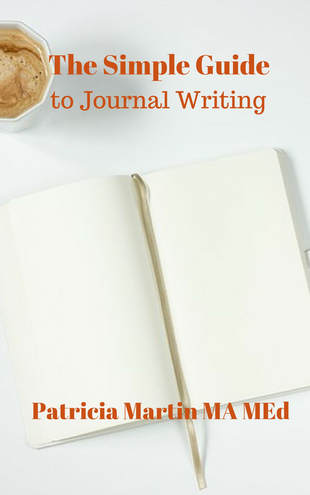
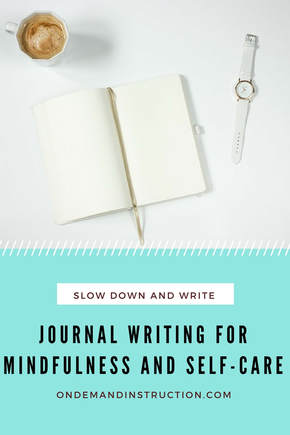



 RSS Feed
RSS Feed